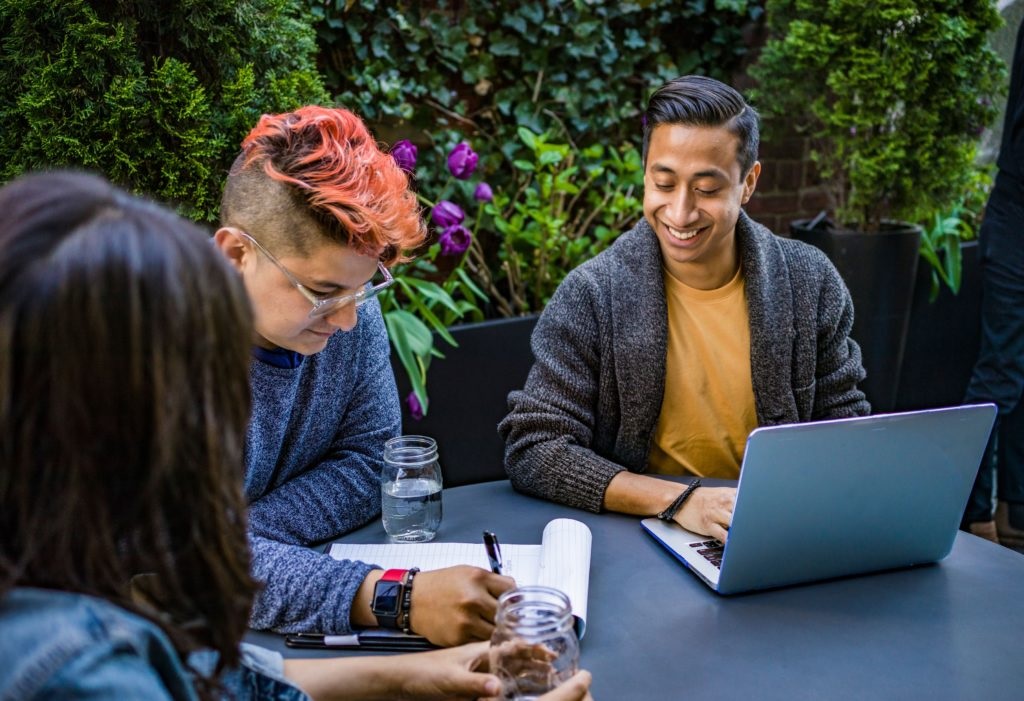
Mentoring can be a valuable resource for personal and professional growth, providing guidance, support, and perspective. However, how a mentor approaches this role can significantly impact the mentoring relationship’s success. Experience sharing, as opposed to advice-giving, is a concept that can greatly enhance the effectiveness of mentoring relationships. This blog will explore the benefits of experience sharing in mentoring, best practices for implementing this approach, and how mentoring platforms can facilitate experience sharing.
Experience Sharing vs. Advice Giving
Before diving into the benefits of experience sharing, it is important to understand the differences between this approach and traditional advice-giving. While advice giving involves the mentor offering solutions and recommendations based on their own experience and knowledge, experience sharing focuses on the mentor sharing their own experiences and insights to encourage the mentee to draw their conclusions and develop their own solutions. This approach allows the mentee to learn from the mentor’s experiences while developing critical thinking and problem-solving skills.
Benefits of Experience Sharing in Mentoring
Experience sharing can significantly impact the learning and development opportunities available to the mentee. By sharing their experiences, mentors can provide real-world examples and perspectives that can enhance the mentee’s understanding of their field and help them develop a more nuanced understanding of their challenges. Additionally, experience sharing can help build self-awareness and self-confidence, as the mentee is encouraged to reflect on their own experiences and draw conclusions.
Best Practices for Experience Sharing in Mentoring
To effectively implement experience sharing in mentoring, it is important to establish clear goals and expectations for the mentoring relationship. Mentors should also prioritize active listening and empathetic communication, creating a safe and supportive environment for open and honest conversation. Encouraging mentee participation and engagement is also important, as this helps to foster a sense of ownership over the learning process. Additionally, providing constructive feedback and actionable insights can help to reinforce the value of experience sharing.
Utilizing Mentoring Platforms for Experience Sharing
Mentoring platforms can be a powerful tool for facilitating experience sharing in mentoring relationships. These platforms allow mentors and mentees to connect, share experiences, and develop relationships based on trust and mutual respect. Some popular mentoring platforms include LinkedIn Learning, MentorCloud, and AskMe.
Case Studies: Successful Mentoring through Experience Sharing
Many examples of successful mentoring relationships utilized experience sharing as a key component. One example is the mentoring relationship between Sheryl Sandberg, COO of Facebook, and Mark Zuckerberg, CEO of Facebook. Sandberg shared her experiences as a woman in a male-dominated industry and provided insights into navigating complex organizational structures. This sharing experience helped Zuckerberg develop his leadership skills and become a more effective CEO.
Conclusion
Experience sharing is a valuable approach to mentoring that can greatly enhance the learning and development opportunities available to mentees. By sharing their experiences and insights, mentors can provide real-world perspectives that help mentees develop critical thinking and problem-solving skills. Mentoring platforms can be an effective tool for facilitating experience sharing and building strong professional relationships. As you seek mentorship opportunities, remember the importance of experience sharing and its many benefits to your personal and professional growth.
FAQs
Q: What is the disparity between a adviser and a trainer?
While mentors share their experiences and insights, coaches provide specific guidance and feedback on skills or tasks.
Q: How do I find a mentor?
There are many ways to find a mentor, including seeking out individuals in your industry or profession, participating in mentorship programs through organizations or schools, and utilizing mentoring platforms.
Q: How often should I see my counselor?
The frequency of meetings will depend on your specific mentoring relationship and goals. Some mentors and mentees meet weekly or monthly, while others may have less frequent meetings. It is important to establish clear expectations and goals for the frequency of meetings early on in the mentoring relationship.
Q: Can I have multiple mentors?
Yes, having multiple mentors can provide a range of perspectives and insights. However, it is important to ensure the mentoring relationships are complementary and not in conflict.



More Stories
The Evolution Of Web Design Trends In Denver: A Historical Perspective
Data-Driven Decision-Making with CRM: Harnessing the Power of Salesforce and HubSpot
The Benefits of Partnering with a Specialized Garage Door Marketing Company